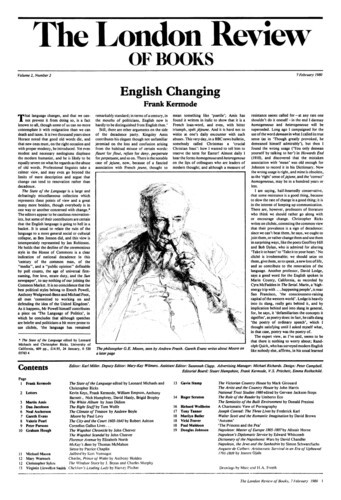When Chekhov died in the German town of Badenweiler in 1904, at his bedside with his wife Olga Knipper and the doctor was a young Russian friend called Rabeneck. Thirty-three years later, Rabeneck sought out Olga Knipper, then on tour with the Moscow Art Theatre, in a Paris restaurant. Olga recognised but did not acknowledge him: on either side of her sat an ‘archangel’, a Soviet watchdog. Olga was to die in 1959, nearly a century after Chekhov’s birth. In his lifetime the Russian intelligentsia saw its heyday, and Olga lived on to see that world vanish for ever.
A sense of that loss is the most sombre theme in Harvey Pitcher’s history of Knipper’s life with Chekhov and the Moscow Art Theatre. There are lighter moments: notably, an account of a dinner-party involving Isadora Duncan, Gordon Craig, Stanislavsky and Olga Knipper. We don’t know what the two Russians thought of Craig locking himself and his secretary into the bedroom in the middle of the meal, but clearly for once they were both upstaged. For the rest, this book is a sober yet fascinating and (except for two missing references) comprehensive account of the Knipper-Chekhov-Moscow Art Theatre connection.
One of the theatre’s directors, Nemirovich-Danchenko, was an exponent of a low-key style of acting with emphasis on sensitive psychological interpretation which, as it turned out, exactly suited both Chekhov’s plays and Olga’s professional talent. The Seagull, a fiasco when first performed in Petersburg, was staged in Moscow; co-director Stanislavsky characteristically reminded the cast that failure would kill the writer they loved, an appeal not lost on the impressionable Olga. The play was a triumph, and she fell in love with Chekhov.
But did she then prove to be the death of him (he was already very ill)? People have thought so and, less excusably, said so. The history of the marriage has been told before, by myself and by Ronald Hingley, making use (pace the misleading claims of this book’s introduction) of most of the same material, published and unpublished. Harvey Pitcher’s further exploration should finally, one hopes, dispel any idea that Olga lured Chekhov into wedlock or made him unhappy. The main strain on the relationship was Chekhov’s sickness, which kept them too much apart. She felt guilt at not staying with him in Yalta, yet was obviously wise to pursue her career. As Pitcher makes clear, an important element in her attractiveness for Chekhov was the glamour, pace and interest of her theatre life in Moscow. To live as an invalid in Yalta was, as he claimed, ‘to sip life once an hour by the table-spoon’.
Two further things troubled Olga: Chekhov’s unwillingness to share his inner life with her (a worry clearly exacerbated by their long separations), and the possessiveness of his devoted sister Masha, who had invested some emotional capital in Olga too and whose fear of exclusion was the cause of some nasty bickering. Once Chekhov was dead, their friendship survived. The tone of Olga’s letter to Masha when she was about to leave Russia (temporarily) during the Civil War is still compounded of affection and guilt: ‘You wouldn’t come with me, would you, Masha?’
It is in such letters to friends, less taut and nervous than those to Chekhov, that we catch glimpses of Olga’s everyday personality, but if she had more of an inner life, it remains hidden. Much in her reactions and motives in the years of upheaval stays unclear, partly because her attitude to the revolution really was ambivalent and she was commendably cautious, and partly because of an unavoidable lack of biographical data. This book only claims to be a portrait of Olga in two roles, and the now-you-see-her-now-you-don’t impression seems to me inevitable. Pitcher quotes Chekhov teasing Olga as ‘a Jewess, a very musical individual who’s studying at the conservatoire and at the same time hedging her bets by taking a course in dentistry’. How could we ever get a clear-cut image of Olga as wife when the picture has been distorted by remarks as memorable as that? Her image as an actress, too, is blurred by the enlarging effect of well-meant Soviet hagiography. Pitcher uses such a source to relate how Knipper made her exit from the theatrical world on her 90th birthday, chiming into a performance of The Three Sisters with the refrain from Pushkin, in a cracked but confident voice. That this is also her exit from the book makes for a curiously unreal, even eerie effect, in dramatic contrast to the dull reverential tone in which the incident was originally recorded. A splendid ending, and thanks to Pitcher’s sympathetic presentation we can feel glad Olga came through it all relatively unscathed, whoever she was.
Send Letters To:
The Editor
London Review of Books,
28 Little Russell Street
London, WC1A 2HN
letters@lrb.co.uk
Please include name, address, and a telephone number.

